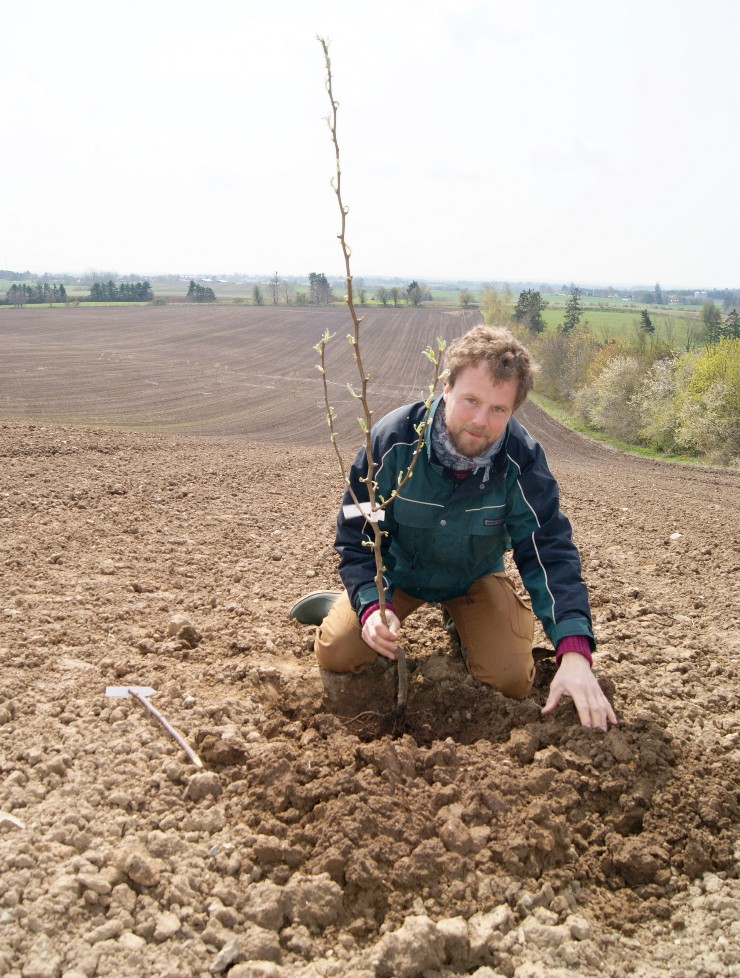SEKEM Egypt
The desert is alive
by Christine Arlt & Christina Büns
Flowering fields, cotton and date plantations in the middle of what is mostly associated with drought and death—the desert. This is not a mirage, but Dr. Ibrahim Abouleish’s SEKEM initiative, which is committed to sustainable development with a holistic approach.
Born in Egypt in 1937, Dr. Abouleish moved to Austria in 1956. He studied chemistry and medicine at the University of Graz where he also received his Ph.D. He then worked as Head of Division for medical research. In Austria, he learned about the ideas of Rudolf Steiner and the Demeter biodynamic standard. When the 40-year-old pharmacist returned from Europe in 1975, he found his home country in very bad shape. A vision came to his mind:
“Sustainable development towards a future where every human being can unfold his or her individual potential; where mankind is living together in social forms reflecting human dignity; and where all economic activity is conducted in accordance with ecological and ethical principles.”
What happened next sounds rather more insane than sane: Dr. Ibrahim Abouleish deliberately bought 70 ha of desert land near Cairo and not in the fertile Nile valley. The experiment worked! By using Biodynamic agricultural methods to maintain the earth instead of exploiting it, he transformed the sand into the 700 ha oasis of today and named it SEKEM—ancient Egyptian for ‘vitality from the sun’.
Egyptian organic pioneer
After building up fertile soil, Dr. Ibrahim Abouleish started to establish the SEKEM Initiative, which today works in the four dimensions of sustainable development: economy, ecology, cultural life and social life. “The concept of SEKEM is strongly influenced by intellectual life, including the philosophy, arts and culture that I got to know in Europe. I experienced that development needs a holistic approach—cultural and social life should receive the same awareness as the economic and legislative points of view. And of course all these dimensions are embedded in ecology, which is the valuable foundation of everything,” says SEKEM’s founder.
Different companies process the agricultural products and distribute them in a fair way within Egypt and the world. Various schools and a vocational training centre support the individual development of young people by offering a holistic approach to education. The SEKEM Medical Centre serves more than 100 patients daily from the surrounding villages with professional and comprehensive health care. Farmers all over Egypt benefit from SEKEM, and several million customers all over the world cooperate with SEKEM in a fair way.
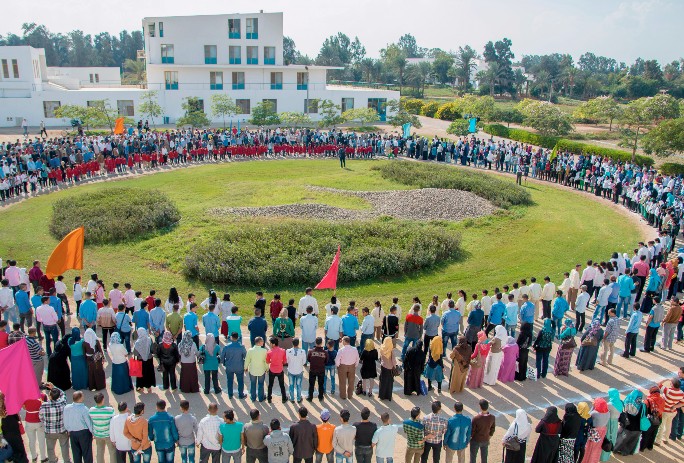
Empowering young people
SEKEM serves all its 1500 co-workers regularly with cultural activities and training courses in order to empower them, develop their potential and raise awareness on topics like sustainability. Furthermore, in 2012, the Heliopolis University for Sustainable Development was established under the umbrella of SEKEM. It aims to empower young people to become social entrepreneurs, able to face and overcome tomorrow’s challenges through innovation, collaboration and technology.
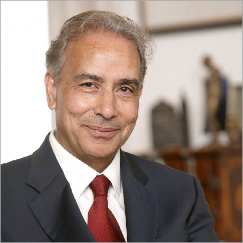
Dr. Ibrahim Abouleish, founder of SEKEM.
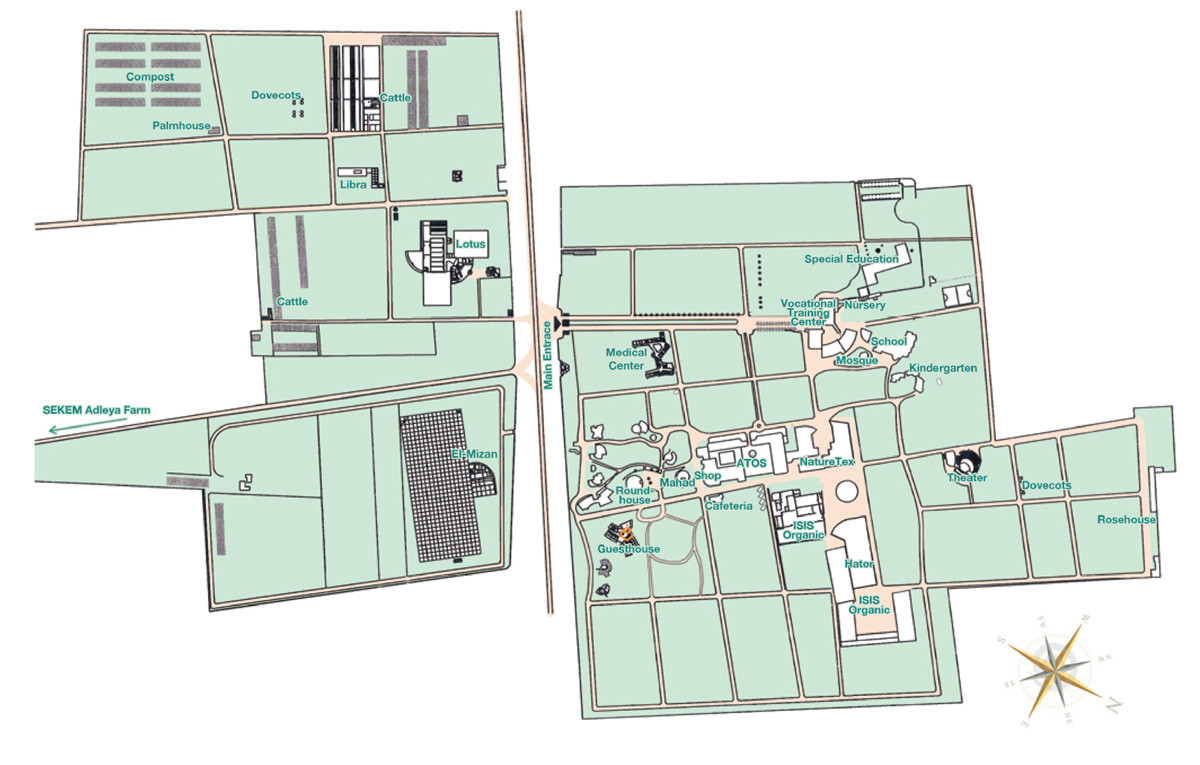
An economy of love
“When my father returned to Egypt from Austria in 1977, he had a vision, but no experience as a farmer,” says Helmy Abouleish, today’s CEO of SEKEM. “Everyone tried to talk him out of it. But he proved them wrong: the desert is alive!” SEKEM has been widely praised as an Egyptian organic pioneer. In 2003, the initiative received the Right Livelihood Award, the Alternative Nobel Prize, as a ‘Business Model for the 21st Century’ and for its ‘economy of love’. “We are not just about selling potatoes,” Helmy Abouleish explains. “We have created a sustainable community in which people live, work and learn together.” SEKEM is a model for sustainable development based on sustainable agriculture—a place where people live and work in a responsible and respectful way, and children learn using a holistic concept in many different fields. SEKEM is a place where all economic activities are done in balance with the cultural, social and ecological dimensions.
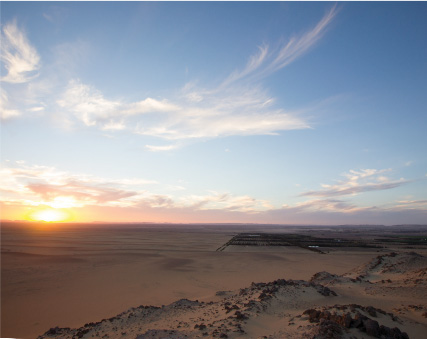
Greening the desert.
Location: Egypt, Sharqiyya, 60 km (37 mi) northeast of Cairo Established: 1977
Area: 684 ha (1,690 ac)
Population: Around 1500 co-workers; approximately 10,000 people from the surrounding villages.
Housing: A huge number of houses and institutions. On the Main Farm, you will find a hotel, several homes and guesthouses.
Common facilities: School buildings, a medical centre, factory buildings, offices and stables. The SEKEM Head Office is at the campus of Heliopolis University for Sustainable Development near Cairo. SEKEM owns three other farms, two in the Western desert and one on the Sinai Peninsula.
To wonder at beauty, Stand guard over truth, Look up to the noble, Resolve on the good.
This leads us truly To purpose in living,
To right in our doing, To peace in our feeling, To light in our thinking. And teaches us trust,
In the working of God, In all that there is,
In the width of the world, In the depth of the soul.
by Rudolph Steiner
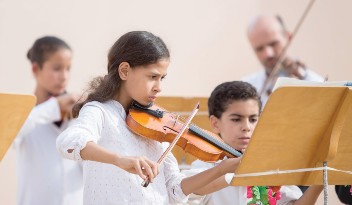
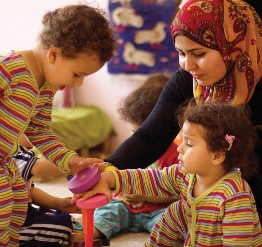
Sekem nursery.
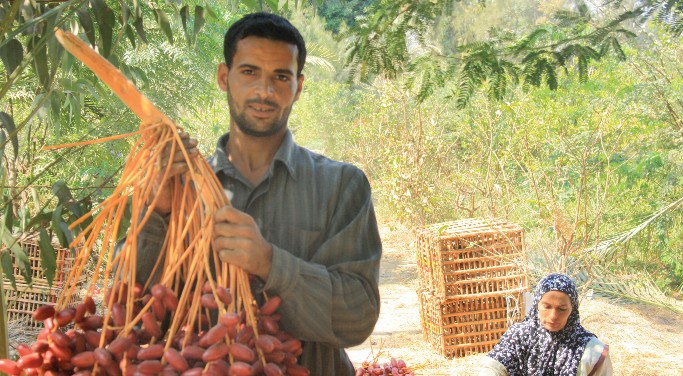
Harvesting dates.
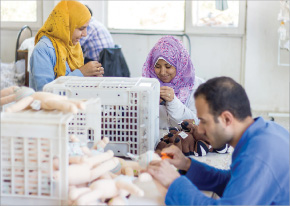
SEKEM Company; harvesting chamomile.
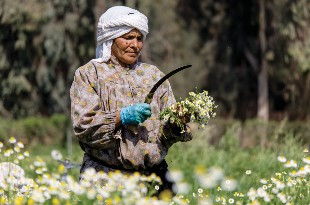
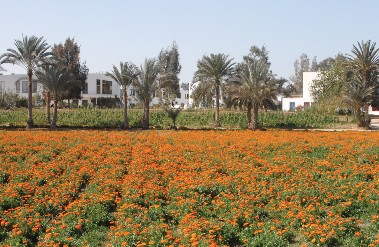
Calendula field.
